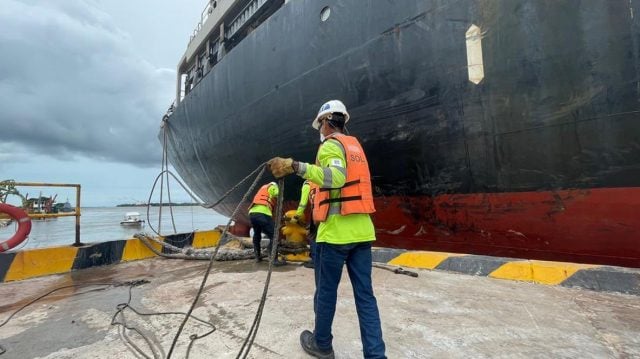The Colombian ambassador to Venezuela, Armando Benedetti, announced this Friday the arrival in his country of a ship with a total of 16,000 tons of urea from the neighboring country for the Monómeros company.
The news was confirmed through the social networks of the diplomat, who announced that the ship would dock in the port of Barranquilla with the cargo, with one piece of information that is also very important: “They charge us $600 per ton. In the market, the ton is between 730 and 930 dollars”, specified Benedetti.
Beyond the savings mentioned by the Colombian government, the announcement of the acquisition has a more important background: a definitive step towards commercial normalization between the two governments and a clear message about the management of one of Venezuela’s strategic assets.The Monómeros issue
Urea is the most widely used nitrogenous fertilizer in the world, due to its high nitrogen content, which favors plant growth. It is ideal for the production of items such as rice, corn, sorghum, potatoes, fruit trees and vegetables.
Colombia’s announcement of making the purchase from Venezuela occurs in the midst of the controversy over the company Monómeros, located in Barranquilla, which until a few years ago provided more than half of all the urea needed for food production in that country.
However, since 2019, the previous Government of Iván Duque put Monómeros in the hands of Juan Guaidó, a former deputy who proclaimed himself in a public square as «interim president» of Venezuela, stripping Caracas of a key company for the supply of fertilizers in Colombia. And what seemed like a purely political move turned into a disaster.
That dispossession was not only ineffective in the strategy of forcing regime change in Venezuela, but it also meant a blow to the Colombian farm workers – which now pay triple for fertilizers – and it also became a breeding ground to put Monómeros on the verge of bankruptcy. . The collapse of the Guaidó administration was such that the company had to be intervened.
With the arrival of Petro to power, last August, the president promised to return the company to its legitimate owners and rebuild relations with Venezuela, at a time when food prices rise worldwide and access to fertilizers is complicated. especially because of the conflict in Ukraine.
In this context, Venezuela has taken a step forward announcing that it is ready to sell fertilizers in the region. «In urea we already have not only our (national) supply, but we also have export capacity», detailed Tareck El Aissami, Sector Vice President for Economy and Minister of Oil, last August.
The completion of the purchase of urea by Colombia not only reaffirms the will to normalize trade relations with its neighbor, but it is a small but important step for the Venezuelan economy, punished for years by US sanctions.
The announcement was made official the same week that the president of Petrochemicals of Venezuela (Pequiven), Pedro Techellea, visited the Monómeros headquarters in Barranquilla to inspect the state of the company. After a tour of the facilities, the official promised to return the prestige to the firm and denounced that the objective of its previous managers had been to bankrupt it.
For now, the Venezuelan authorities have asked Interpol for the arrest and capture of 23 people, appointed by Guaidó at the head of Monómeros, for having usurped functions, while an exemption from the Office of Foreign Assets Control (OFAC, for its acronym in English) of the US Department of the Treasury. Which, for the time being, allows it to operate until 2023 regardless of the unilateral coercive measures against Caracas.
Although administrative steps are still needed for the company to be operational again in the hands of the Venezuela State led by the Maduro government, the Petro administration is not willing to wait much longer to stock up on fertilizers, since it is not capable of producing them.


